Staff
Teachers
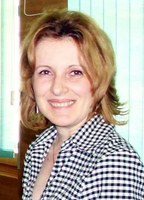
Ana-Maria Buga, MD, PhD, Director, Center of Clinical and Experimental Medicine, University of Medicine and Pharmacy
Petru Rares str, No 2, Craiova, Romania, Email: anamaria.buga@webmail.umfcv.ro
Dr Buga research interest and expertise. Old age is associated with an enhanced susceptibility to systemic disorders and poor recovery from brain injuries. Therefore the overall goal of the project is the identification of molecular and cellular mechanisms leading to failure of axonal regeneration after a brain injury in aged animals. The goal of regenerative medicines is to restore the structures that are lost or damaged after disease, or ageing. In mammals, once development has finished, it is generally the case that an organ cannot regenerate following acute or chronic damage disease. This is despite the fact that these organs have grown in size from birth to adulthood due to the presence of residual stem cells which divide very slowly to permit growth. Such stem cells are clearly not normally capable of permitting regeneration. One factor involved in the loss of regenerative ability that stem cells lose self-renewal capacity and function during aging. These in turn likely impacts on the decline in organ maintenance and regeneration during aging. Another factor is the imposition of inhibitory factors in the local environment. Expertize: aged animal models of cerebral ischemia, genomic and proteomic analysis, immunohistochemistry.
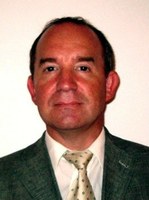
Alexander Bürkle, MD, Chair of Molecular Toxicology, University of Konstanz, 78457 Konstanz, E mail alexander.buerkle@uni-konstanz.de
Dr Burkle is the Chair of the Molecular Toxicology group. A team of Scientist that seeks to understand how cells respond to genotoxic (DNA-damaging) stresses on a molecular and biochemical level and how these mechanisms contribute to (patho-)physiological states such as aging and cancer development. Research projects focus on the following topics: I. Genetic Toxicology / Poly(ADP-Ribosyl)ation; II. Genetic Toxicology / DNA Damage and Repair; III. Biomarkers of Aging; IV. Inflammatory Toxicology; V. Development of Novel Technologies.
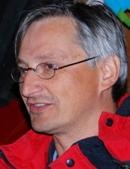 Günter Lepperdinger PhD, Leopold-Franzens-Universität Innsbruck, Austria E mail guenter.lepperdinger@uibk.ac.at
Günter Lepperdinger PhD, Leopold-Franzens-Universität Innsbruck, Austria E mail guenter.lepperdinger@uibk.ac.at
He is molecular biologist and embryologist by training, and is an Adjunct Professor of Biochemistry at the University of Salzburg and an Adjunct Professor of Developmental Biology at the University of Innsbruck. He started his research career at the late Institute of Molecular Biology of the Austrian Academy of Sciences, worked at the Max Planck Institute for Biochemistry in Martinsried, at the National Institute for Child Health and Development, NIH Bethesda Maryland, and currently holds a position as a Principle Investigator and Section Head at the Institute for Biomedical Aging Research of the Austrian Academy of Sciences in Innsbruck, Austria. His research interests are stem cell biology in the context of the human aging and regeneration, and biochemistry of hyaluronan metabolism in development and pathology. He is a recipient of the Christian-Doppler-Award, the Best of Biotechnology Award, and the Werner-Welzig-Award. He is an APART fellow of the Austrian Academy of Sciences, Burgen Scholar of the Academia Europeae and a Distinguished Life-Time Member of the International Society for Hyaluronan Sciences. He served as an Associate Editor for ‚Experimental Gerontology’ - Elsevier, and is the Section Editor for Regenerative Medicine and Technology of ‚Gerontology’ - Karger, as well as Editorial Board Member of several international scientific journals. He is a Co-founder and Vice President of the Austrian Scientists and Scholars in North America - ASCINA.
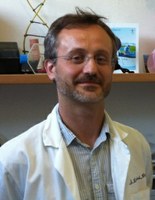
Antonello Simone Lorenzini PhD. (Intensive Programme Coordinator), tenured assistant professor of nutrition, Department of Biomedical and Neuromotor Sciences, University of Bologna, Bologna, Italy, Email: antonello.lorenzini@unibo.it
Dr Lorenzini focus is on the cellular mechanisms that ensure longevity and on the extracellular and intracellular signaling that regulate them. In the laboratory of Dr Vincent Cristofalo he has focused on intercellular signaling regulating cell proliferation and senescence and on the differential proliferative capacity of mammals and how this correlate with life span. With Dr Christian Sell at Drexel University, hi has investigated the endocrine modulation of longevity trying to separate the influence of GH from that of IGF-1. Now he operate in the Research Center of Nutrition of Department of Biomedical and Neuromotor Sciences of the University of Bologna where his main research focus is the understanding of how DNA damage signaling interact with cell cycle progression. For this aim his is exploiting the comparative approach using a cell bank of mammals with different longevity.
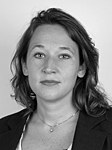 Prof. Andrea B Maier, (Intensive Programme Co-Coordinator) VU University Medical Center, Gerontology and Geriatrics, Centrum OuderenGeneeskunde Amsterdam, De Boelelaan 1117, 1007 MB, Amsterdam, Netherlands. Email: a.maier@vumc.nl
Prof. Andrea B Maier, (Intensive Programme Co-Coordinator) VU University Medical Center, Gerontology and Geriatrics, Centrum OuderenGeneeskunde Amsterdam, De Boelelaan 1117, 1007 MB, Amsterdam, Netherlands. Email: a.maier@vumc.nl
Prof. dr. dr. Andrea B. Maier (1978) graduated in Medicine at the Medical University Lübeck (Germany) in 2003 and registered as specialist internal medicine-geriatrician at the Leiden University Medical Center (the Netherlands) in 2009. Contemporaneously she worked on translational research on ageing, defending her thesis on gerontopsychiatric-medical units in 2003 and on cellular senescence in 2008. Her research is driven by her passion to unravel ageing mechanisms and the interaction of ageing and age-related diseases, which eventually leads to counteracting interventions. Since 2012 she is appointed as Head of the Section Gerontology and Geriatrics at the VU University Medical Center and the Amsterdam Center on Aging, Amsterdam (the Netherlands) and is full professor of Medicine, particularly Gerontology.
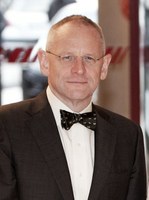 Johannes J. (Hans) Meij, MBA, Universiteit Leiden, Netherlands. E mail: j.j.meij@lumc.nl
Johannes J. (Hans) Meij, MBA, Universiteit Leiden, Netherlands. E mail: j.j.meij@lumc.nl
Dr. Johannes (1960) graduated in Cultural and Medical Anthropology at the Free University Amsterdam (the Netherlands) and specialised in the field of ageing in Africa. He obtained an MBA in hospital management in 1996. During his research years in remote areas of Upper East Ghana (2002 - 2006) he tested the disposable soma theory in a contemporary population. He obtained his PhD in Medicine in 2008 at the Leiden University, The Netherlands. In 2010 he was appointed in the board of directors at Amphia Hospitals, Breda, one of the largest teaching hospitals in The Netherlands. Since 2009 he is (honorary) associate professor of gerontology and lectures "Leadership" and "Business Administration" at the Leyden Academy of Vitality and Ageing. In 2013 he co-founded (with Prof. dr. dr. A.B. Maier) "De Westhof", center for reconnaissance and trans generational exchange in the field of ageing, Zoeterwoude, The Netherlands.
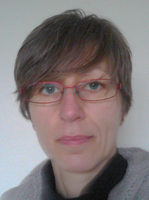 Marie-Christine Pardon, Lecturer in Translational Neuroscience, Faculty of Medicine & Health Sciences, University of Nottingham, United Kingdom E mail marie.pardon@nottingham.ac.uk
Marie-Christine Pardon, Lecturer in Translational Neuroscience, Faculty of Medicine & Health Sciences, University of Nottingham, United Kingdom E mail marie.pardon@nottingham.ac.uk
Stress is a normal part of life and the way we deal with it is crucial to the development of many mental diseases, ageing and most importantly age-related and neurodegenerative disorders, but the underlying mechanisms remain largely unknown. The focus of my research is to understand the mechanisms underlying behavioural and cognitive changes relevant to psychiatric diseases, normal aging and neurodegenerative diseases, occurring as a result of exposure to stress and/or vulnerability to stressful events, with the aim to identify novel targets for therapeutic strategies. Dr Pardon's research is highly interdisciplinary and translational, combining behavioural, pharmacological, molecular and magnetic resonance imaging (MRI) approaches to gain understanding on how stress influences aging and brain diseases using rodent models of these conditions, thereby providing a basis for clinical investigations and development of treatment strategies.
Research in Dr Pardon's group focuses on the following themes: -Identifying the stress pathways involved in the progression of Alzheimer's-like pathology that can be targeted for the development of novel treatment strategies - Identifying the brain pathway underlying the impact of lifestyle factors (stress and exercise) on Alzheimer's-like cognitive decline -Understanding how the rewarding properties of the stress hormone corticosterone influence cognitive function - Modelling post-partum depression with the ultimate aim of improving our understanding of the mechanisms involved and the development of improved therapeutic strategies - Understanding how prenatal stress influences brain development and aging.
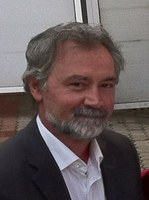 Prof. Dr. Aurel Popa-Wagner, Department of Psychiatry, Aging & Psychiatric Disorders Group, Rostock University Medical School, Gehlsheimer Straße 20, D-18147 Rostock, Germany, Email: aurel.popa-wagner@med.uni-rostock.de
Prof. Dr. Aurel Popa-Wagner, Department of Psychiatry, Aging & Psychiatric Disorders Group, Rostock University Medical School, Gehlsheimer Straße 20, D-18147 Rostock, Germany, Email: aurel.popa-wagner@med.uni-rostock.de
Dr Popa-Wagner group has studied the plasticity of the aging brain in response to stimuli/injuries for more than 15 years and to stroke injury in aged animals for the last 10 years. Overall the results suggest that: (1) although older animals retain the potential for brain plasticity-related cytogenetic events after injury, the expression of key brain plasticity-associated genes and proteins is often attenuated and temporally altered; (2) an important cellular event associated with restricted axonal growth after stroke in aged animals is the early formation of a scar in the infarcted region; (3) Granulocyte-Colony
Stimulating Factor lowers mortality and enhances neurogenesis in the brains of post-stroke aged animals; (4) hypothermia acts neuroprotectively in animals models of stroke. Expertise: aged animal models of cerebral ischemia; behavioural analysis; recording of EEG and various physiological parameters by telemetric measurements; MRI for small animals; immunohistochemical procedures, proteomics, genomics.
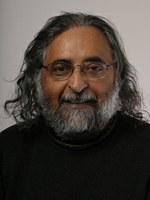
Suresh I.S. Rattan PhD, D.Sc (Intensive Programme Output Coordinator) Department of Molecular Biology and Genetics, Aarhus University, Denmark. Email: rattan@mb.au.dk
Suresh Rattan, is at the Department of Molecular Biology and Genetics, Aarhus University, Denmark. His research areas and expertise include ageing of human cells in culture, prevention, removal and repair of macromolecular damage, and applying the concept of mild stress-induced hormesis as a modulator of ageing. He is the recipient of the Lord Cohen Medal in Gerontology (2011) from the British Society for Research on Ageing, an Honorary Doctorate from the Russian Academy of Medical Sciences (2011), and is the present Chairman of the Biological Section of the European Region of the International Association of Gerontology and Geriatrics (IAGG-ER). He has published more than 220 scientific articles, and has edited/co-edited 12 books, including books for children, general public and research scientists. He is the founder and Editor-in-Chief of Biogerontology - a peer reviewed journal published by Springer. He is the discoverer of the ageing modulatory effects of kinetin and zeatin, now used in several skin care products. His personal website is: http://www.sureshrattan.com
Invited Experts
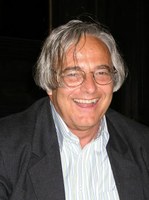 Prof Claudio Franceschi, Professor of Alma Mater, University of Bologna, E-mail: claudio.franceschi@unibo.it
Prof Claudio Franceschi, Professor of Alma Mater, University of Bologna, E-mail: claudio.franceschi@unibo.it
Claudio Franceschi is full professor of Immunology at the University of Bologna, Italy. He has been the past Director of the Department of Experimental Pathology, University of Bologna (2010-2012), and founder and director of the Interdepartmental Center for Integrated Studies on Biophysics, Bioinformatics and Biocomplexity "L. Galvani" (CIG), University of Bologna (2001-2006). He also served as Scientific Director of the Italian National Research Center for Aging (INRCA) (1996-2005), a scientific institution of the Ministry of Health devoted to basic aging research and treatment of the elderly. His research activity is focused on the biology of human aging and longevity, and he discoveredthe most important characteristics of immunosenescence in humans (accumulation of memory T cells, shortage of naive T cells, shrinkage of T cell repertoire, activation of innate immunity, role of CMV infection). These studies led to the conceptualization of the theory of “inflamm-aging” that links aging with major age-related diseases. He proposed the study of centenarians as model of successful aging and longevity, and he pioneered the study of genetics of aging (both nuclear and mitochondrial), epigenetics, and metagenomics (gut microbiota), and published more than 600 peer reviewed publications on these topics. His lab also covers other fields of research regarding human aging, such as identification of the changes of N-glycans with age; studies of the aging rate of human organs such as liver and muscle;study of tissutal and circulating miRNA; study of proteasomes and immunoproteasomes; studies on “in silico immunology” and mathematical models/bioinformatics of immunological phenomena (immunological memory; the immune system as a network; proteasome and immunoproteasome) and metabolic/inflammatory diseases (T2D). Claudio Franceschi is involved in many European Projects, and in particular he is/was Coordinator of European Large Collaborative Projects: 1. NUAGE (New dietary strategies addressing the specific needs of the elderly population for healthy ageing in Europe, FP7 KBBE 2011-2015, 30 Participants). 2. GEHA (GEnetics of Heathy Aging, FP6 Health 2004-2010, 27 European Partners & China).
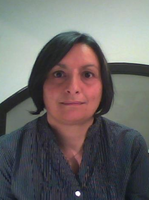
Maria Luisa Genova, PhD, tenured assistant professor of biochemistry, Department of Biomedical and Neuromotor Sciences, Medical School of the University of Bologna (Italy). Email: marialuisa.genova@unibo.it
She holds a PhD in biology and cell physiology from the University of Bologna and she was also trained as a visiting fellow at the Rice University in Houston, Tx, USA. Her main research interest is mitochondrial bioenergetics, with particular emphasis on the kinetic properties of the respiratory chain in physio-pathological conditions and in ageing. She is presently involved in studies on the structural and functional organization of the respiratory chain; in particular, the presence of supramolecular assemblies (supercomplexes) comprising the respiratory complexes, the role of the Coenzyme Q pool in electron transfer and the steady-state kinetics of Complex I and Complex III with emphasis on the production of reactive oxygen species in relation to the mitochondrial theory of aging. She has published several experimental papers and she has been invited author of some reviews in leading journals on the subject.
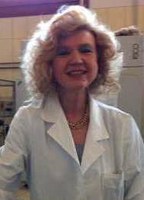
Prof. Silvana Hrelia, PhD, Professor of Biochemistry, Department for Life Quality Studies, Director of the Nutrition Research Center, University of Bologna. Email: silvana.hrelia@unibo.it
The main research fields are cellular biochemistry and nutritional biochemistry. She developed new and effective food based strategies to optimise human health and to reduce the risk of aging related chronic degenerative diseases by an integrated approach: from the identification of traditional and innovative health food products, through the recognition of nutritional components that influence the functional properties. In particular, the main research interests and expertises are: identification of neuroprotective and cardioprotective compounds from dietary sources in terms of cytoprotective, antioxidant and antiapoptotic activities in cells in culture; genomic-wide gene expression analysis for the identification of the genes regulated by dietary components; identification of bioactive components and Nutraceuticals as biomodulators of cellular functions; identification of early biomarkers of oxidative stress in human subjects linked to increased risk of chronic/degenerative diseases. The aim is to increase the knowledge of the molecular and cellular mechanisms behind neuroprotective and cerdioprotective effects of functional components of food justificative of neuroprotection and cardioprotection in vivo.
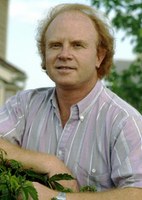 Thomas E. Johnson, Ph.D. Department of Integrative Physiology, Institute for Behavorial Genetics, University of Colorado, Boulder, CO 80309-0447
Thomas E. Johnson, Ph.D. Department of Integrative Physiology, Institute for Behavorial Genetics, University of Colorado, Boulder, CO 80309-0447
e-mail: johnsont@colorado.edu
Dr. Johnson is a Professor in the Department of Integrative Physiology, Faculty Fellow at the Institute of Behavioral Genetics at the University of Colorado at Boulder, Adjunct Professor at the Buck Institute for Age Research, and Member of the University of Colorado Biofrontiers Institute. He obtained his B.Sc from the Massachusetts Institute of Technology in 1970 and his Ph.D. in genetics from the University of Washington in 1975. Dr. Johnson studies the genetic dissection of the longevity-enhancing properties of dietary restriction in both the nematode and mouse model, the stochasticity in longevity and rate of aging in the nematode, and predictions of longevity. Dr. Johnson made the discovery that longevity can be influenced by mutations in single genes and has since found genes that extend lifespan and promote stress-resistance. He has won numerous awards and is a Fellow of the Association for the Advancement of Science.
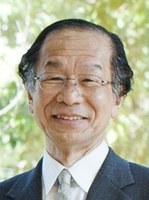
Nozomu Mori, PhD, Professor of Anatomy and Neurobiology, Nagasaki University School of Medicine, JAPAN, Email: morinosm@nagasaki-u.ac.jp
Dr. Mori is a professor of anatomy and neurobiology at Nagasaki, and is a Japanese representative of Asian Aging Core for Longevity Program that is funded by JSPS (Japan Society for the Promotion of Science) since 2009. He graduated at University of Tokyo, did postdocs at City of Hope research institute and Caltech in the Los Angeles area, and then served as Assistant Professor at Andrus Gerontology Center, University of Southern California. He then moved back to Japan, and became Director of Department of Molecular Genetics at National Institute for Longevity Science (NILS). Since 2006, he is at the current position. His research focus centers around neuroplasticity loss and proteostasis in the aged brain. He found cell-type selective transcription element NRSE that determines neuron-specific gene expression, and neuron-specific phosphotyrosine-signal adaptor N-Shc, and neuron-specific microtubule-disrupting factor SCG10. His research includes, but not limited to, age-related changes of those neuron-specific and/or selective factors. He is leading the JSPS-funded AACL project for promoting discussion and collaboration in the east Asia, among Korea, China, and Japan in particular, and serving as a connecting-hub in the bio-aging community in the East Asia.
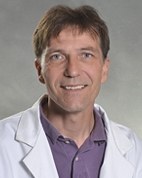 Christian Sell, PhD., Department of Pathology & Laboratory Medicine, 245 N. 15th St.,Mail Stop 435,Philadelphia, PA 19102, Email: Christian.Sell@DrexelMed.edu
Christian Sell, PhD., Department of Pathology & Laboratory Medicine, 245 N. 15th St.,Mail Stop 435,Philadelphia, PA 19102, Email: Christian.Sell@DrexelMed.edu
My research has been focused on neuroendocrine signaling specifically involving the growth hormone/IGF-I axis for the past 15 years. I have investigated the role of IGF-I as an anti-apoptotic factor critical for the development of the transformed phenotype, the role of IGF-I signaling in replicative senescence, and the influence of altered IGF-I on mammalian lifespan. My laboratory has been involved with an analysis of an IGF-I deficient mouse line in terms of lifespan, glucose metabolism, response to high fat diet, and changes in autophagy. Our observations on this mouse line has led us to put forth the hypothesis that growth hormone and IGF-I have independent roles in the modulation of longevity. These studies have been performed in parallel with cell culture work to examine cellular components that influence lifespan including IGF signaling, autophagy and DNA repair. I have worked on the problem of cellular senescence since 1994 when I joined the research group established by Dr. Vincent Cristofalo at the Medical College of Pennsylvania and have published a dozen articles in this area. I have explored the influence of DNA damage response on aging and lifespan and have also been examining the intersection between mTOR signaling, autophagy, and cellular senescence. Our current studies focus on mitochondrial maintenance and retrograde signaling in senescence, neurocognitive decline and aging.
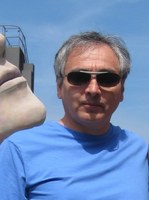
Claudio Torres, PhD. Associate Professor. Department of Pathology and Laboratory Medicine, 245 N. 15th Street, MS 435, Philadelphia, PA 19102, Email: claudio.torres@drexelmed.edu
Dr. Torres’ research focuses on the role of cellular senescence in the development of brain pathology. Aging is the greatest risk factor for the development of neurodegenerative disease, however the aspects of the aging process that predispose to the development of brain pathology are largely unknown. A recent advance in the basic biology of aging, that may have implications for brain disorders, is the recognition by Dr. Torres group that human astrocytes are able to activate the senescence program in response to several stressors including beta amyloid, HIV products, oxidative stress or exhaustive replication. In addition his research has demonstrated that human aged brain and brain affected by Alzheimer’s disease are significantly populated by senescent astrocytes, which because their altered secretory pattern may affect microenvironment and brain physiology. The demonstration that senescent cells accumulate in aged and AD brains, and that these cells lose functionality, creates a new paradigm to understand common mechanisms in the interplay aging and neurodegenerative disease, elucidating pathways and exposing new targets for therapeutic interventions aimed to decrease the cognitive decline associated with aging.
